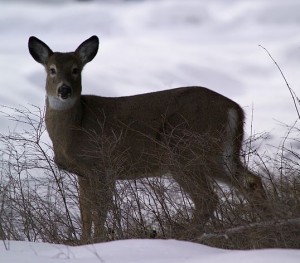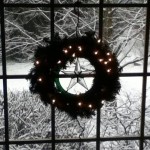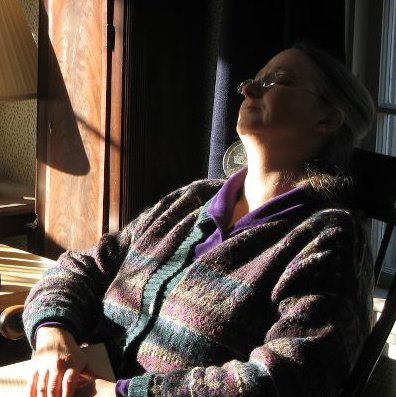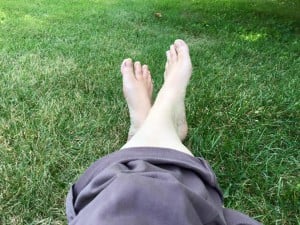This morning was one of the first genuinely cold days of winter.
As I drove to work today, to my west I saw blue shadows snow speeding past, and rank on rank of winter-bare trees on the hills. To my east, I saw backlit hilltops, and the first rays of sun pierced the woods. I could smell pine smoke rising like incense from the wood-stoves of my neighbors, and I watched the lights come on in sleeping houses.
This world is so beautiful. And yet, in spite of that, we humans manage to bring so much ugliness into it.
The natural world? Has death in it, and suffering, and sorrow. Sickness, parasites, the flash of a predator’s teeth; hunger and pain are all undeniably part of the natural world.

Being Pagan doesn’t blind me to those facts.
However, for all the pain in the natural world, there is beauty to accompany it: white pines in the morning, ice crystals in the sun, the deer startled by the noise from my car. When I look at the natural world, I see balance, wholeness, and grace.
Not so, the human world.
At the end of my commute is the high school where I work.
Mine is a small school in a poor district, struggling to do a lot with a little. Our students come from families that are comfortably middle class, struggling working class, or ground down by generations of poverty. We send our graduates off to state and community colleges, as well as the occasional Ivy League school or prison cell.
I think that makes them a lot like teenagers anywhere.
Many of them seem like strong young trees to me, or like the deer: clean-limbed and full of that beauty nature gives to young things. I watch them, running or playing hoops, absorbed in their music or making art. They are lovely, and many of them show great promise.
Others, though, have already been badly broken. Often, I encounter kids of seventeen, who have already lost the sense that their lives have meaning. Many feel little empathy for others, or have given up on finding anything better in their lives than their next high, their next sex partner, their next smartphone or set of wheels.
I understand that none of this is unique to my landscape, or to my students, my kids. Humans just seem to have a talent for bringing ugliness into the world, and for destroying the beauty of our young.
My point is this: these are not natural conditions. This is not, like disease or death, simply part of a greater pattern of natural beauty; this is an aberration, an exception to the truth that nature reflects beauty and balance. We are not, of course, the only species that preys upon its young–but we are one of the few that has a choice about it, and it is hard to see what we do to one another and not feel overwhelmed by it. There’s racism in my beautiful hills. Domestic violence, child abuse, drunkenness and squalor alongside the old stone walls and wild things.
Some Pagans will tell you that they don’t believe in evil, only in things that are not in balance. But the longer I live, the less I’m sure that’s true.
I do share the typical Pagan view that our world is not fallen, and not a battleground for gods of absolute good and absolute evil. I have no room in my heart for the notion of a god of evil, or for nature as fallen or damned.
When I look at humankind, however, I see so much that I can’t reconcile with the beauty around me. It is hard not to despair, even in the bright light of morning.

Over the days since I began working on this piece, my mind has returned over and over to a story I once heard about Anne Frank. I remembered reading in her diary, years ago, that when she was in hiding, what she longed for most was the sky, contact with the natural world. And I wondered, as I have many times, if, even as she was dying in the hell of the camps, there might have been some comfort in having reclaimed the sky.
I can never know, of course. Perhaps it’s foolish of me even to think that something as small as the sight of sky would be of any use to someone in such terrible suffering.
But the story wouldn’t let me alone, so I searched for it, and discovered that, actually, at least for the time she was in hiding, the tiny glimpses she had of sky and clouds, and of one single white chestnut tree meant everything to her.
As the Sapling Project tells the story, Anne could only safely look out from one attic window. And in spite of the small comfort you might think one, single window would be, her diary celebrates that small slice of the natural world that she was able to see.
At least in the years she kept a diary, Anne never lost that sense of wonder and communion with nature. “As long as this exists,” she wrote, “how can I be sad?”
Anne’s tree is dead now. However, its descendants live on, and they have been shared all around the world, in her memory. And of course the beauty that she loved continues, and surrounds our human world still.
Is it enough? Is that beauty enough to counterbalance the ugliness that is also part of being human, and living in the human world?
Maybe. Maybe not. I’m not sure I can ever be sure of the answer to that question.
It’s an old question, though, and I’m not the only person to have struggled with it. And even if the darkness of human evil were more powerful than the Light of the world I see, I know that I am closer to harmony with that world when I turn to face its Light.
I don’t have to deny the beauty or the ugliness in the world to follow the advice James Nayler gave to Quakers, 350 years ago:
Art thou in the Darkness? Mind it not, for if thou dost it will fill thee more, but stand still and act not, and wait in patience till Light arises out of Darkness to lead thee. Art thou wounded in conscience? Feed not there, but abide in the Light which leads to Grace and Truth, which teaches to deny, and puts off the weight, and removes the cause, and brings saving health to Light.
















